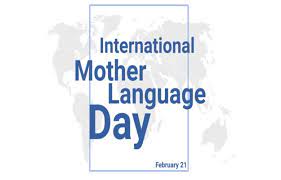
International Mother Language Day: International Mother Language Day is observed annually on February 21 to promote linguistic, cultural, and multilingual diversity. The aim of the celebrations is to preserve traditional knowledge and cultures through sustainable methods and support multilingualism in societies.
February 2023 Current Affairs Quiz
Theme of International Mother Language Day
The recommendations from the Changing Education Summit are in line with the 2023 International Mother Language Day theme, “Multilingual education – a necessity to transform education”, where an emphasis was also placed on Indigenous people’s education and languages.
Significance of International Mother Language Day
International Mother Language Day recognizes that languages and multilingualism can advance inclusion, and the Sustainable Development Goals’ focus on leaving no one behind. Multilingual education based on mother tongue or first language is encouraged and promoted by UNESCO. It is a type of education that begins in the language that the learner masters most and then gradually introduces other languages. This approach enables learners whose mother tongue is different from the language of instruction to bridge the gap between home and school, to discover the school environment in a familiar language, and thus, learn better.
History of International Mother Language Day
The United Nations Educational, Scientific, and Cultural Organization (UNESCO) General Assembly established International Mother Language Day in November 1999. The idea to celebrate International Mother Language Day was the initiative of Bangladesh. The UN General Assembly welcomed the proclamation of the day in its resolution of 2002.
On 16 May 2007 the United Nations General Assembly in its resolution A/RES/61/266 called upon Member States “to promote the preservation and protection of all languages used by peoples of the world”. By the same resolution, the General Assembly proclaimed 2008 as the International Year of Languages, to promote unity in diversity and international understanding, through multilingualism and multiculturalism and named the United Nations Educational, Scientific and Cultural Organization to serve as the lead agency for the Year.





